SUMMARY
This is AI generated summarization, which may have errors. For context, always refer to the full article.
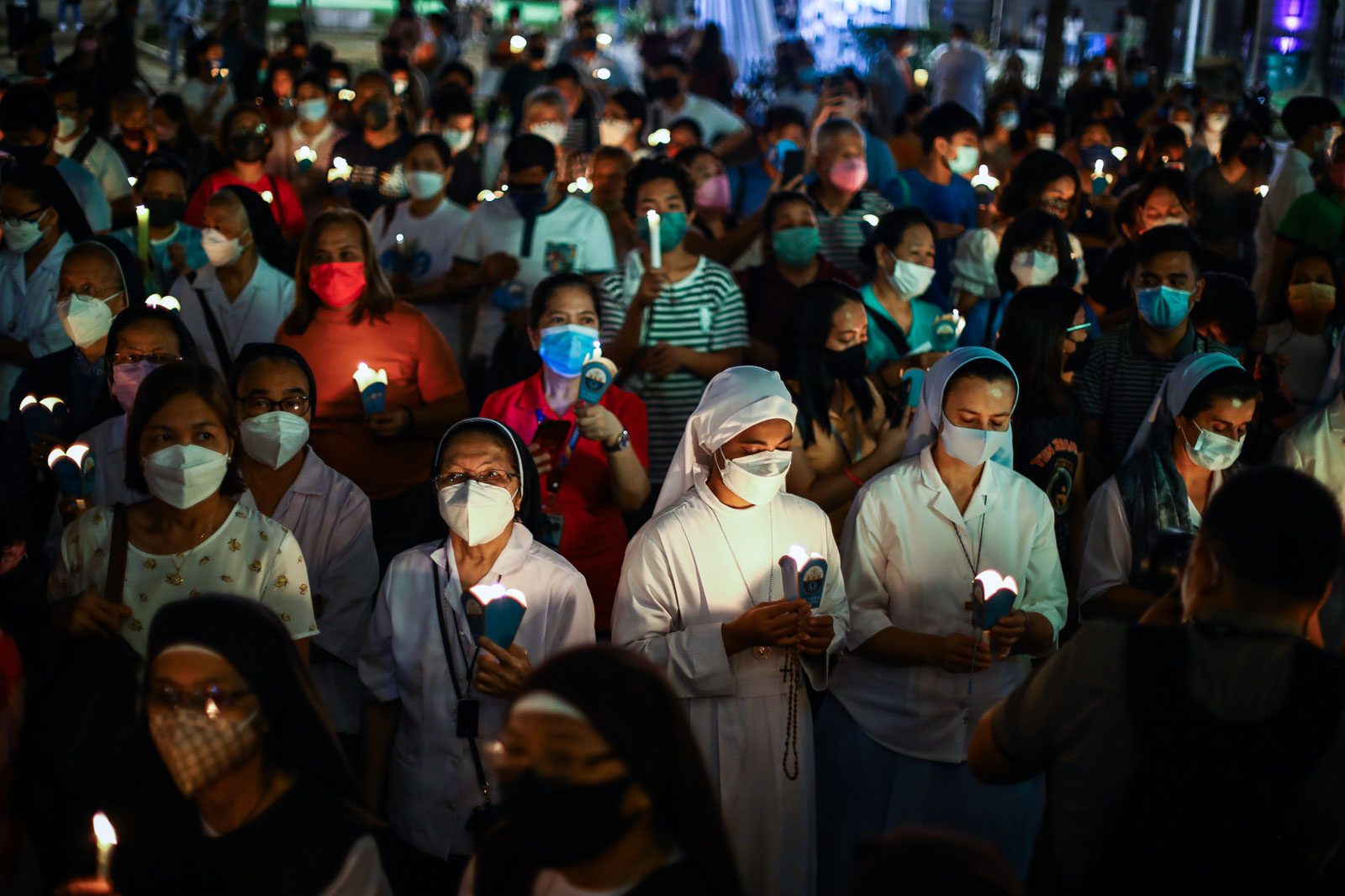
MANILA, Philippines – The war in Ukraine has dragged into its second month this week, and amid the deadly pounding of missiles, the humanitarian toll of fighting continues to grow with millions of civilians either trapped in besieged cities or fleeing into neighboring countries.
In the weeks since war broke out on February 24, some progress was seen as Ukrainian and Russian negotiators met in Turkey on Tuesday, March 29, for the first face-to-face talks in nearly three weeks, with Kyiv seeking a ceasefire without compromising territory or sovereignty.
The resumption of face-to-face talks has been viewed as a significant step toward reaching this end, and as a sign of shifts behind the scenes as Russia’s invasion bogs down and Ukrainian forces gain some ground in recent days.
For the Philippines and the rest of the international community, it remains crucial to sustain pressure on calls to end the war in Ukraine.
“Any hesitation coming from the Philippines or Philippine authorities will be used by the aggressor. It is a firm position that is the way to stop the Russians. It means not looking only at your individual interests because something bigger is at stake,” Polish Chargé d’Affaires to the Philippines Jarosław Szczepankiewicz said.
Rappler recently sat down with Szczepankiewicz to take stock of what might come next in the Russian invasion of Ukraine, its effects on both the Philippines and Southeast Asia region, and how both governments and people might prepare for a “period of high instability.” Below are excerpts of our conversation, edited for length and clarity:
Zooming into the current situation, we hear and see a lot of news about millions of Ukrainians having no choice but to flee their country, many others fighting to defend their home. What are the possible scenarios you see for where this war might go? Do you see it possibly ending anytime soon?
If I assess the current situation on the ground, the Russians failed in their operation. So what was supposed to be two days, a war for Kyiv, we are past the fourth week of war and they are not moving, not progressing on the ground and they failed to control the air over Ukraine. So for this reason, they are now sending missiles from behind the front line because they are afraid to go with the helicopters because they lost a lot of materials.
If you see the recent development that they start to fire missiles, it means they don’t control air so they use a kind of “dirty” war to hit civilians because this fire is indiscriminate. They changed their tactic, so now they are targeting civilians. The objective of such change in tactics is to break the morale of Ukrainians. But they will fail.
I think we’re approaching the final stage of the operation on the ground that the Russians will try to set up an attack on Kyiv and we will see. I think it might be their last chance from the military point of view, and we will see if they will be able to and how they [Ukrainian army] will react.
How do you see that playing out?
It’s hard to suspect what will happen in the future but Russian forces have made minimal progress. This is a reality. The switch in the strategy of attrition, they failed to get control of the air, and they largely rely on standoff weapons launched from Russian airspace. This is the reality.
A lot of approaches have been taken by countries – economic sanctions, sending defense equipment, calling out Russia’s actions. At this point in time, what might be some of the best ways to address the ongoing fighting in Ukraine?
On maintaining the sanctions, pressure is of key importance for the whole international community. We cannot leave Russia time to regain its strength and operational capacity. We must act with determination and without hesitation.
The sanctions’ pressure on Russia has three main goals: it is crucial to cut off the Russian war machine as soon as possible from the revenues, which mainly come from the export of oil, coal, and gas. Cost increases are needed to stop the Russian invasion like through disrupting supply chains, etc. And third, preventing further production of weapons – bombs produced by Russian industry are currently falling on Ukrainian estate, schools, kindergartens, nurseries, hospitals, and old age homes.
But we need to be prepared for after war. It is essential today to prepare a long-term plan for the reconstruction of Ukraine. The Polish prime minister proposed to launch such a plan worth $100 billion.
On the response of the Philippines in particular, how do you view the evolution of the country’s position and where it stands today?
Looking at the present situation, there is no room for “non-political” cooperation with Russia – both in a bilateral and multilateral format. This war has already affected spheres of culture, science, sport, and many other fields.
Returning to the Philippine situation, after the period of the first emotional reaction with the voting at the UN condemning the Russian invasion of Ukraine, I think it’s necessary to systematize the Filipino support for this resolution.
In what way? What shape could that take?
I can’t respond in detail but it must be consistent and thoughtful in order to respond to the key needs signaled by Kyiv. Not Russia. Kyiv. And above all, it must be uninterrupted throughout the duration of the conflict. Any hesitation coming from the Philippines or Philippine authorities will be used by the aggressor. It is a firm position that is the way to stop the Russians. It means not looking only at your individual interests because something bigger is at stake.
How can a country like the Philippines do that when its not really directly involved in the situation? Is it through words?
Yes, the words are important. And I think we need to bear in mind that the Russian aggression against Ukraine is not only about tanks and gunshots but also about using one of the most dangerous warfare of our times – disinformation.
For months preceding the day of invasion, Russia had been instigating a wide array of disinformation machinery, taking advantage of narratives demonizing the alleged nationalism or pro-Nazism sentiments in Ukraine. Their aim was clear – to create a pretext for military action, justify the aggression, and disturb the information space all over the world.
The myth of Ukrainian Russophobia and the alleged harassment of the Russian-speaking population is the foundation of the Russian disinformation machine. In fact, there has never been any persecution of the Russian-speaking or ethnic Ukrainian population or genocide at the hands of the Ukrainian authorities. If there was, we would have known about it before. They use the “special operation” to say something happened but nobody testified, had any kind of evidence that something like this happened. This is a clear backbone of Russian disinformation.
I think in view of persistent attempts to use information as a weapon, it is imperative to be particularly careful of the narratives imposed by the Russians. Particularly, sources of information should be carefully verified and efforts should be stepped up to counter Russian disinformation campaigns. There is a great responsibility for media to not take Russian narratives right away without fact-checking. It must be based on facts. When we have facts and refer to facts and logic, now we are close to the truth and have a picture of what is going on. If you take only narration separated from facts, it looks like logic, but it is not because this narration is void of the facts. This is how they work.
So one important way to keep up pressure is by being aware of what Russia is pushing and also making people aware of what’s really happening on the ground.
Exactly…. We’re living in a globalized world. The Philippines is an archipelago so there’s a feeling that we are separated by the sea from danger, but that’s not true. This danger is present in the South China Sea. Relying on old ways of feeling secure, I think, in our world, is not valid because the ocean now is an obstacle for invasion. We witnessed it in World War II. I think every Filipino knows you were not spared.
I think Filipinos are very strong emotionally. They can discern what is good and what is bad because of this emotional strength. And I think that every Filipino is outraged by Russia’s barbaric attacks on civilians, including children as well as other non-military targets. I think it offends every Filipino that Russia is deliberately breaking the rules of international law in order to break Ukrainian society.
I received a lot of support from my Filipino friends that Poland is ready to accept refugees fleeing the war. I think that Filipino people don’t like the situation that Russia violated international law on multiple counts. Russia is conducting its war in Ukraine with criminal disregard, I would say, for human life. And is increasingly targeting civilian populations and infrastructure, and the international community and Filipino people must rise above and call Russia for an immediate ceasefire. The political class as well.
Russia has to comply with international law and open humanitarian corridors… and Russia has to engage constructively and in good faith in meaningful negotiations aimed to end the conflict and guarantee Ukraine’s long-term security. This is a task for the political class in the Philippines to call for. Now is the time to give full support to the UN and the recent resolutions for this. We need to stand behind the UN system.
Leaders and diplomats are working to end the fighting and avoid prolonging the situation of war, because not only Ukrainians and Russia will suffer from this. Can you explain this to us?
We have a member of the security council who violated the charter they are supposed to defend. If we have other members of the security council that can go in this direction, it means the end of the stability of the world for everybody because it means the law of the strongest against the weaker only. There will only be world of bilateral relations and allies without any common framework for us.
This problem of Russia violating Article 2 of the UN charter is making all of us think if Russia is worth being a member of the security council.
So it can be a consequence of the war that they will not be able to join, for instance?
It opened the door to discuss a new security structure in the UN. It was proposed many times in the past. We have some big players that want to be a part of the UN security council and they can provide new breath in the day-to-day institution because we are talking about reform of the UN system, especially the UN security council for years.
We are not pushed to do it in the past because more or less, members of the security council behaved properly. Now we have a completely different situation. One of the members clearly broke International law.
Bringing what’s happening in Ukraine closer, let’s talk about how the conflict might affect the region. Many people are also looking at China and what moves they take, or don’t take. What should countries watch out for when it comes to China’s actions?
As I said, we need to mind that we have a nation with nuclear weapons and the status of the second most powerful army in the world that has launched a brutal attack on a state that doesn’t have nuclear weapons. In the context of the South China Sea, we should have it in mind because it happened. If it happened once, it can happen again.
For [Russian President Vladimir] Putin, the key project in this region is the Eurasian partnership with China. Following recent declarations, China is getting closer to this partnership. Putin and [Chinese President] Xi Jinping met on February 4 this year on the Inauguration Day of the Winter Olympics. It should be considered as the next step on the way to a geopolitical – but still not formalized – alliance between Russia and China.
It took place when Russia was increasingly isolated in connection with its actions toward Ukraine, and at the same time, China sharpened its rhetoric related to Taiwan’s status and disputes with the West largely pertaining to this island. Focusing the Western world on Ukraine aggression makes it easier for Beijing to implement its provocative policy in the Asian region without serious political and image costs.
We must remember as well that China is the only friendly country to Russia with any influence over Russia to stop the war. We need to look at China and how they behave because they can be a positive factor, they can be a negative factor.
And what might the Philippines need to be aware of when it watches how China moves?
In my assessment, China has no interest to go into a major conflict now. I can be wrong but in my perspective, no. They are not in the same situation as Russia and they can wait to achieve their objective in peaceful ways. Different tactics.
There are some provocative actions in the South China Sea but I think their perspective is different. They don’t want war. They want to integrate the countries in a big economy controlled by China. They are not looking for a military conquest because what will they have with war? Nothing. It’s just like Russia – they have nothing coming out of this war.
But China is more interested with wealth, spreading influence, than to go for war to solve an issue. But we don’t know everything.
It’s been over a month since Russian forces invaded Ukraine. In what ways has this war already shifted the landscape of the world we’re living in today?
I think we are entering into a period of high instability. One of the factors is that two major players – China and Russia – decided to change the security architecture of the world with different tools, but the objective is the same. It means that the Philippines has to be prepared for instability.
In a way, it’s only the beginning.
Yes, and another factor that is worrying me – but it’s a different theater – is cyber criminality. There will be a war about control of the Web. Even in Ukraine, we saw the Russians tried to shut down the internet in Ukraine. With our help, Elon Musk moved his Starlink satellites and we boosted the internet with his help. It’s already a part of war – cutting information. Not only disinformation, but cutting information.
I think the one thing that is important as well is the need to boost the military. This is exceptional because normally when there is a crisis, we cut the defense spending to give to children, social campaigns… to alleviate poverty, things like these. But with instability around, the military has to be boosted. This is something that can be contrary to logic – because people are hit by crisis, let’s help them. But if we can’t defend, then we lose.
These are some of the things that government can do. I’m curious, what can ordinary people do in this situation?
Talk about it. The people have power. Maybe they don’t know it. The more they talk, the more they influence. Of course there is always room open for donations and other kind of help but in the Philippines, you have no problems with this when typhoons come every year and there is disaster and Filipinos help accordingly.
Maybe it’s also time – looking at what’s going on in Ukraine – if we don’t have any solution and start seriously thinking about stopping business with Russians, the cost in the future could be much higher than what we are facing now. These are some of the things facing us. In some sense it’s also always better to be on the side of the winner. I am confident that the free world and the UN will be winners in this war.
You’ve been in the field of diplomacy for a while, you understand both Ukraine and Russia very well. Is there anything that gives you hope at this point?
I think Russia is nearing the point where they sit at the negotiation table because what they are doing, for me, is a sign that they are running out of options and need to step back. – with reports from Reuters/Rappler.com
Add a comment
How does this make you feel?
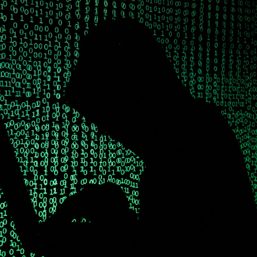
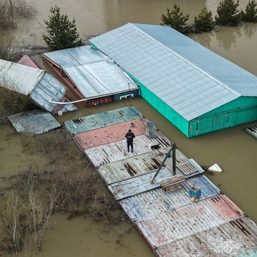

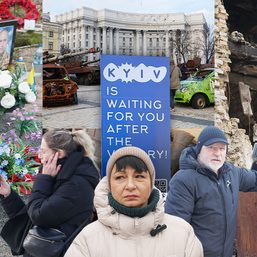
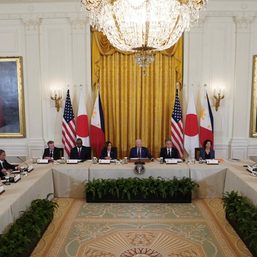
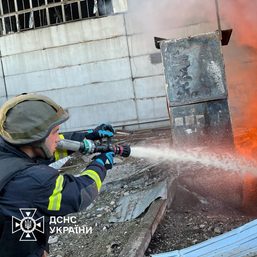
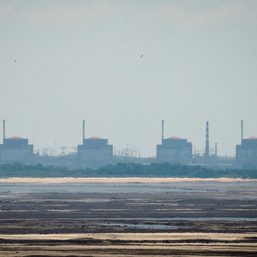
There are no comments yet. Add your comment to start the conversation.